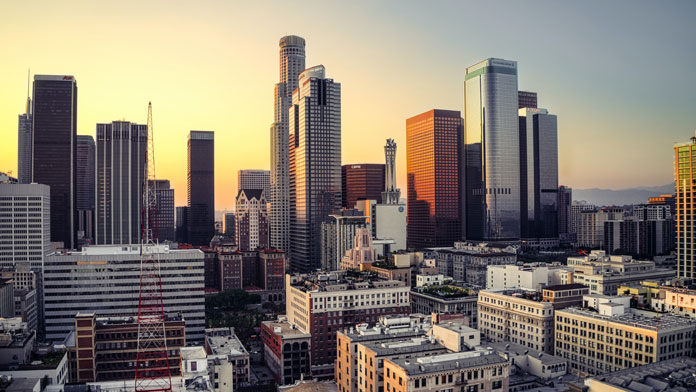Expert Insights
One of the most disturbing things you’ll see go hand-in-hand with drug addiction is homelessness. And nowhere is that on display quite like it is in Los Angeles. For those who aren’t “used to” seeing encampment areas like LA’s “skid row,” to say it’s a culture shock is an understatement. Tents line the sidewalks as far as the eye can see in either direction, and those tents are usually occupied by residents who are severely struggling with addiction and mental health issues. The ultimate question is what can we do to help these people access treatment and come in off the streets for good?
~ Natalie Baker
How Expensive is Rehab in Los Angeles?
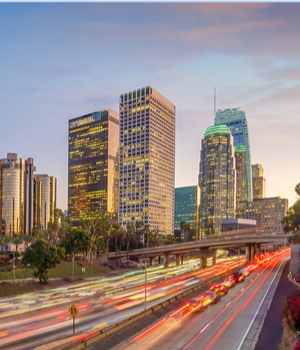 The cost of drug and alcohol rehab in Los Angeles varies from program to program and depends on several influences, such as:
The cost of drug and alcohol rehab in Los Angeles varies from program to program and depends on several influences, such as:
- Treatment setting (inpatient vs. outpatient)
- Features and amenities (such as upscale offerings)
- Duration of program (30 vs. 90 days)
- Which insurance providers and plans the program accepts
- Government funding
- Location (city vs. mountains)
Typically, you can expect inpatient facilities to be more expensive than outpatient since you are paying for room and board. Likewise, because of the upscale offerings like spa treatment or massage therapy, executive and luxury rehabs will run you much more than a standard inpatient program.
How Much Does Drug Rehab Cost in California?
California is ranked 23rd nationwide in terms of addiction treatment affordability, with an average cost of drug and alcohol rehab of $56,654 (without insurance).
- Medical detox is the most expensive, with an average cost of $139,673
- Long-term inpatient drug rehab in California costs an average of $49,994
- Outpatient addiction treatment in California costs an average of $8,307
- Outpatient methadone treatment is the most affordable, with an average cost of $7,381
Los Angeles is a relatively high cost of living compared to the average in California, meaning you can expect costs to be on the higher side of these averages.
Does Insurance Cover Rehab Center Costs?
Insurance will help keep your costs down since most plans provide at least partial, if not full, coverage. You’ll just want to make sure you find Los Angeles drug rehabs that are in-network with your provider, whether they are private insurance, Medi-Cal, or Medicaid. You can do that by calling the number on the back of your insurance card.
Of the more than 1,500 treatment programs across the state:2
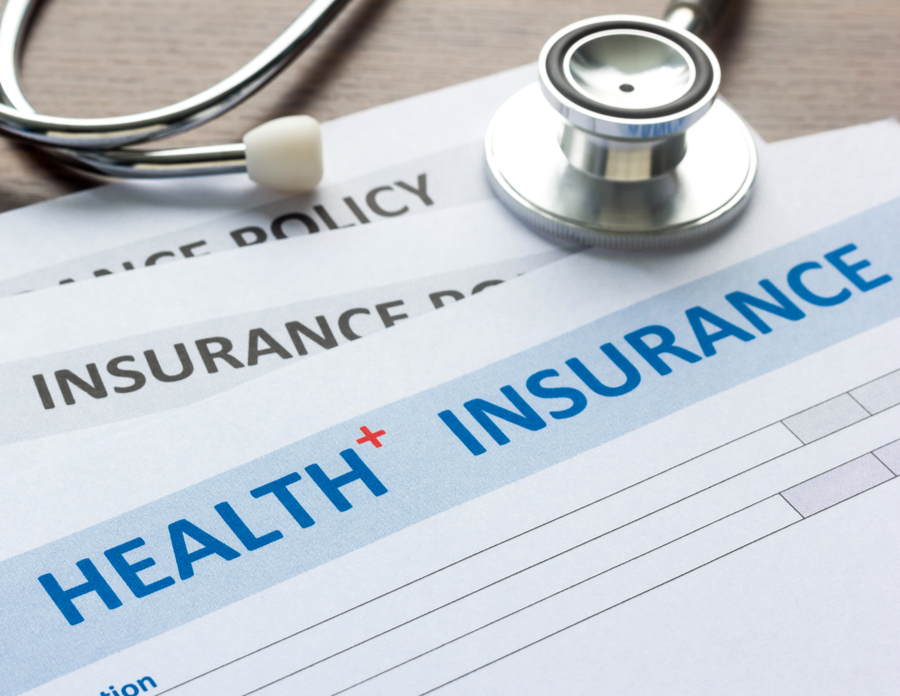
875 accept private health insurance

314 accept Medi-Cal insurance
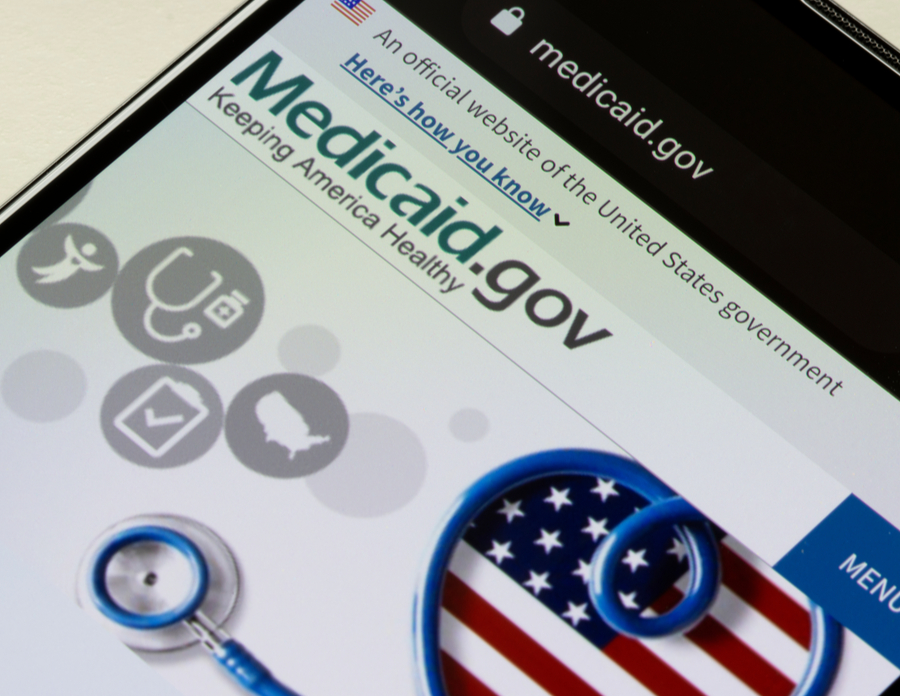
587 accept Medicaid insurance
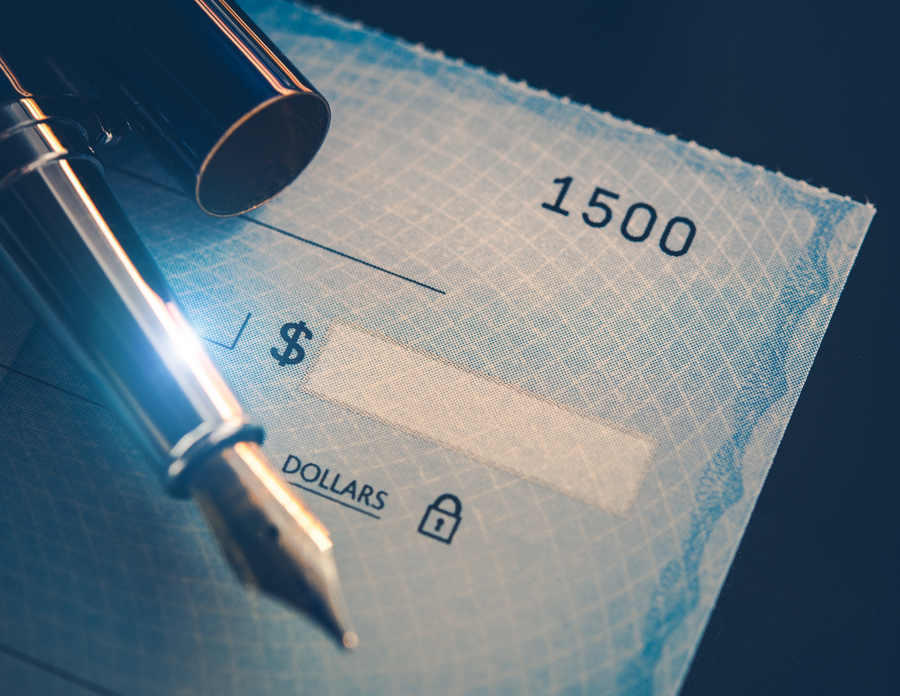
1,244 accept cash or self-payment
Are There Free Drug Rehab Centers in Los Angeles?
Even if you don’t have insurance, there are plenty of state-funded and free programs that offer low-cost or even free care. Other alcohol and drug rehab centers in Los Angeles may offer sliding-scale fees, which means that you are only required to pay what you can reasonably afford based on your financial situation.
Some programs are able to keep their costs low thanks to government funding. These are accessible for those with no insurance or no income, and the facilities usually require that potential patients verify their residence within California, their legal residence in the U.S., addiction status, and lack of insurance and income.
Besides choosing a state-funded facility, there are some other ways you can make addiction treatment much more affordable for yourself or someone you care about, such as by:
- Choosing a sliding-scale rehab or detox center
- Applying for individual scholarships
- Applying for grants offered through the Substance Abuse and Mental Health Services Administration (SAMHSA)
- Raising money on a crowdfunding site
- Finding an addiction treatment center that offers financing or payment plans
How Many People in LA Struggle With Drugs and Alcohol?
About 37,770 people in Los Angeles County are receiving addiction treatment in publicly-funded rehabs. However, approximately 725,000 addicted individuals are still in need of care, and another 2 million fall under the category of “risky users,” meaning they are at risk of developing a substance use disorder and could benefit from professional help as well.1
Here are some more statistics about Los Angeles County drug and alcohol use for people aged 12 and older:1
- Just over 6% have alcohol use disorder
- Nearly 5% misuse prescription opioids like oxycodone
- About 2.5% use cocaine
- About 2.8% have an addiction to an illegal drug
Drug and Alcohol Laws in Los Angeles
California Good Samaritan Overdose Prevention Law: The Good Samaritan law of California was created in response to the rising number of fatal drug overdoses. Many of these deaths are preventable, but witnesses often avoid calling 911 out of fear they will be arrested. This law is designed to encourage seeking medical care for an overdose victim by providing a 911 caller limited protection from arrest, charge, and/or prosecution for low-level drug law violations. It’s important to note this law only protects people who possess small amounts of drugs in quantities, not suggesting trafficking or sales. If you and your friends are using illicit drugs and suspect that someone has overdosed, call 911 right away. The Good Samaritan law ensures you will not face drug charges after calling for help for your friend.
California Government Treatment Bills: The California Ethical Treatment for Persons with Substance Use Disorder Act is a bill aimed at providing patients receiving addiction treatment to be treated with respect and dignity. It outlines requirements for all California drug rehabs, such as individualized plans, dual-diagnosis care, evidence-based practices, and credentialed and qualified staff. Under Senate Bill 110, contingency management, a drug program offering tangible rewards and incentives for abstinent behaviors, such as drug-free urine tests, is now covered under Medi-Cal.5
Rehab for People Convicted of Non-Violent Crimes: Under Proposition 36, California allows those who have been convicted of non-violent crimes to choose between incarceration and probation with rehabilitation services.6
California Employee Protections for Addiction Treatment: California employers with 25 or more employees are required to accommodate employees who attend addiction treatment voluntarily. These accommodations can vary but may include vacation time, permission to use sick leave, or unpaid time off with job protection. Employees may also be able to receive time off through the Family and Medical Leave Act (FMLA) or the California Family Rights Act (CFRA).
With countless accredited drug rehab centers in Los Angeles, finding the right program should be fairly easy. If you find that you need assistance in choosing a program, we are here to help. Get help today, contact our confidential helpline at
800-681-1058
(Who Answers?)
.
How to Choose Addiction Treatment Settings
Medical detox: Detox involves a set of interventions aimed at treating your withdrawal symptoms and achieving a medically stable, substance-free state. These interventions may include:
- FDA-approved withdrawal medications
- Symptomatic medications
- Supportive care, such as IV fluids
- Case management
- Detox counseling
Inpatient: Inpatient Los Angeles rehabs involve living at the treatment center for the length of your program, which may last anywhere from 30 to 90 days.
Partial hospitalization programs (PHPs): The most intensive outpatient option, PHPs involve several hours of care per day, five to seven days per week. It often serves as a good bridge between inpatient and outpatient care.
Intensive outpatient programs (IOPs): IOPs involve several hours of therapy for three to five days per week.
Standard outpatient treatment: Standard outpatient care is the least intensive option, involving just a few hours of therapy per week, meeting one or two times.
Aftercare: You may want to supplement your care with other forms of support, such as 12-step programs like Narcotics Anonymous (NA) and Alcoholics Anonymous (AA) or non-12-step programs like SMART Recovery.
Should You Go to Specialty Drug Rehabs in Los Angeles?
Addiction treatment is not a one-size-fits-all approach – everyone has different needs based on their history, intersecting identities, substance use, and more. Los Angeles drug rehabs acknowledge and embrace the need for specialized and culturally-responsive care.
LGBTQ+
Rehabs that specialize in treating members of the LGBTQ+ community provide a safe space for patients to recover from drug and alcohol addiction. Providers also understand challenges unique to this community, such as internalized homophobia and transphobia, family rejection, social exclusion, and discrimination.
Faith-Based
Faith-based treatment programs offer a spiritual approach to addiction recovery, integrating prayer groups and literature studies into treatment plans. If your religion is important to you, you may want to consider finding a spiritual rehab or 12-step program.
Men-Only
Men-only programs exclusively treat men who are recovering from addiction. Men are often stigmatized or judged for being “weak” for seeking help, and men-only programs understand these challenges and can cater care specifically for their needs.
Women-Only
Women-only facilities specialize in treating women and provide a safe space for women to process and recover, especially for those who may have experienced sexual assault or abuse from a male partner or loved one.
Teen Rehab
Teen facilities understand the importance of adolescents and teens having their own space for addiction recovery in which they can support one another from an understanding and empathetic place. Teens may have different treatment needs than adults, such as help with family dynamics, co-occurring mental health disorders, and education.
Young Adult
Young adult programs specialize in treating people between the ages of 18 and 30 years old, addressing unique challenges and risk factors, such as academic stress, thrill-seeking behaviors, drug experimentation, and more.
Luxury Rehab
Luxury rehabs provide patients with a relaxing resort-like environment to jumpstart their addiction recovery. Every luxury program is different, but they typically provide upscale features, such as swimming pools, massage therapy, spa treatment, equine therapy, gourmet meals, and more.
Executive
Executive programs specialize in treating working professionals who need to continue working while recovering from drug or alcohol addiction. They typically combine the upscale features and setting of a luxury rehab with practical amenities, such as high-speed internet, private workrooms, and more.
Dual Diagnosis
Many people with a substance addiction also have a co-occurring mental health disorder, such as bipolar disorder, antisocial personality disorder, major depressive disorder, or posttraumatic stress disorder (PTSD). Co-occurring disorders, also known as a dual diagnosis, require comprehensive and integrated care that fully addresses the unique challenges of each disorder.
What Medications Are Used to Treat Opioid and Alcohol Addiction?
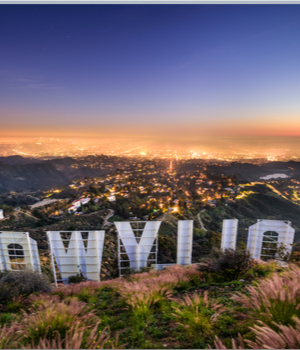 While in a Los Angeles drug and alcohol rehab center, you may receive medications if you are being treated for alcohol or opioid addiction. There are medications approved by the Food and Drug Administration for the treatment of these two types of addictions. These medications include:3,4
While in a Los Angeles drug and alcohol rehab center, you may receive medications if you are being treated for alcohol or opioid addiction. There are medications approved by the Food and Drug Administration for the treatment of these two types of addictions. These medications include:3,4
- Acamprosate: This alcohol addiction medication reduces cravings and post-acute withdrawal symptoms like insomnia and anxiety.
- Disulfiram (Antabuse): This alcohol addiction medication causes unwanted symptoms like flushing and heart palpitations when you drink while taking it. This reduces your motivation or desire to drink.
- Naltrexone (Revia/Vivitrol): This alcohol and opioid addiction treatment medication is an opioid antagonist that binds to receptors in the brain and blocks the desirable effects of alcohol and opioids, making them less rewarding.
- Methadone: This opioid addiction medication is a full opioid agonist that reduces withdrawal symptoms and cravings without producing a euphoric high.
- Buprenorphine: This opioid addiction medication is a partial opioid agonist that alleviates cravings and withdrawal without causing pleasurable feelings.
- Suboxone (buprenorphine/naloxone): This combination opioid addiction medication includes buprenorphine to alleviate cravings and withdrawal and naloxone, an opioid antagonist that is often used to reverse the effects of an opioid overdose. When included in this combination medication, naloxone deters misuse because if someone injects Suboxone, they will go into immediate withdrawal.
If you have a co-occurring mental health disorder, you may also be prescribed mental health medications, such as antidepressants or mood stabilizers.
How to Choose the Best Los Angeles Rehab for You
Since everyone has different needs, everyone is going to benefit from a different program. One person may want an upscale residential setting that resembles a resort, while someone else may be looking for a flexible intensive outpatient program to attend when they aren’t working. When choosing between drug rehab centers in Los Angeles, you should consider the following factors:
- Philosophy: Some facilities may have a different treatment approach or philosophy, such as holistic programs that integrate alternative and complementary methods like yoga into care and faith-based programs that have a spiritual approach to recovery.
- Setting: Decide if you’d like a more urban setting like in downtown Los Angeles, a relaxed beach environment, or treatment away from people in the mountains.
- Inpatient or outpatient: Choosing whether you want to attend inpatient/residential rehab or outpatient care can help you narrow down your choices. If you aren’t sure which type is right for you, you can always receive an evaluation through your healthcare provider.
- Demographic-specific treatment: Some Los Angeles addiction programs specialize in treating specific demographics, such as veterans, teens, LGBTQ+ individuals, and more.
- Cost: Make sure you consider the cost, as well as any financing options that may be available to you through the facility or SAMHSA.
- Insurance: If you have insurance, make sure you find a program that accepts your provider and plan.
- Features and amenities: Features and amenities are really important to some people while others are less concerned about them, but make sure you investigate what features are offered, such as spa treatments, pools, private rooms, and more.
- Visitor policy: If visiting with your family during your recovery is important to you, then you’ll want to compare visitor policies to settle on which one works best for you and your loved ones.
- Peer support: If you enjoy mutual support groups, you may want to choose from Los Angeles alcohol rehab centers that integrate peer support meetings into plans.
Should You Travel for Drug and Alcohol Rehab in Los Angeles?
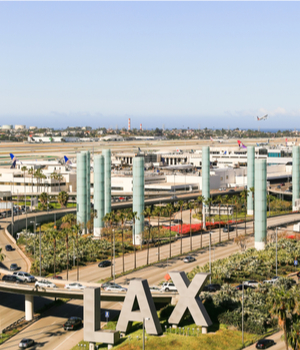 Whether you wind up traveling to Los Angeles for drug and alcohol rehab is ultimately up to you and your priorities. Here are some reasons you may want to consider traveling:
Whether you wind up traveling to Los Angeles for drug and alcohol rehab is ultimately up to you and your priorities. Here are some reasons you may want to consider traveling:
- You prefer the climate of Los Angeles
- You want a change of scenery
- You live in a state or city that doesn’t offer the type of care you need
- You want treatment by the beach
- You have family or friends who live in Los Angeles and can provide support
- Your insurance covers treatment in Los Angeles
One of the major advantages of attending drug rehab in Los Angeles is the wonderful climate. Even in the winter, temperatures are generally fairly warm, especially during the day.
If you live somewhere where the weather is particularly bad in the winter, you may want to travel to Los Angeles to take advantage of the sunny weather.
Another advantage is that traveling to Los Angeles allows you to escape your everyday environment, which is likely rife with stressors and triggers, including loved ones who have enabled your substance use or who use substances with you.
Traveling for treatment allows you to clear your head and focus solely on your recovery.
Resources
- FENTANYL OVERDOSES IN LOS ANGELES COUNTY. (2022). DATA REPORT.
- FindTreatment.gov. (n.d.). FindTreatment.gov.
- Los Angeles County Department of Public Health. (2019). Costs of alcohol and other drug abuse/abuse. Substance Abuse Prevention and Control (SAPC) Brief.
- Substance Abuse and Mental Health Services Administration, Center for Behavioral Health Statistics and Quality. (2017). Treatment Episode Data Set (TEDS): 2005-2015. State Admissions to Substance Abuse Treatment Services.
- Winslow, B.T. and Hebert, M. (2016). Medications for Alcohol Use Disorder. American Family Physician 93(6): 457-465.
- Substance Abuse and Mental Health Services Administration. (2022). MAT Medications, Counseling, and Related Conditions.
- California Legislative Information. (2021). Bill Text.
- Center for Substance Abuse Treatment. (2005). Substance Abuse Treatment for Adults in the Criminal Justice System. Treatment Improvement Protocol (TIP) Series 44. HHS Publication No. (SMA) 13-4056. Rockville, MD: Substance Abuse and Mental Health Services Administration.

